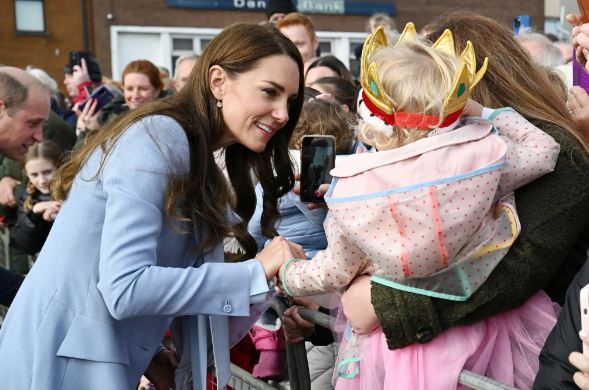The recent public statement released by Princess Catherine regarding her cancer diagnosis, although lacking specific details about the type of cancer she has, sheds light on a common experience shared by many individuals who unexpectedly discover cancer during unrelated medical procedures. Oncologists emphasize that such occurrences are unfortunately all too familiar in the realm of cancer diagnosis and treatment.
Dr. Elena Ratner, a gynecologic oncologist at Yale Cancer Center, underscores the prevalence of unexpected cancer diagnoses, drawing from her extensive experience with patients diagnosed with various forms of cancer affecting the female reproductive system. She explains that situations where cancer is discovered during procedures for other conditions, such as endometriosis, are not uncommon. Endometriosis, a condition characterized by the presence of uterine-like tissue outside the uterus, can often lead to the discovery of unexpected cancers, particularly in cases where benign ovarian cysts are suspected but turn out to be malignant upon further examination by pathologists.
Princess Catherine’s mention of undergoing a course of preventive chemotherapy, also known as adjuvant chemotherapy in medical terminology, resonates with oncologists familiar with cancer treatment protocols. Dr. Eric Winer, director of the Yale Cancer Center, explains that adjuvant chemotherapy aims to prevent cancer recurrence and further complications following surgery. Dr. Michael Birrer, director of the Winthrop P. Rockefeller Cancer Institute, elaborates on the rationale behind adjuvant chemotherapy, highlighting its role in targeting microscopic cancer cells that may remain after surgical removal of visible tumor masses.
Princess Catherine’s statement also touches upon the emotional toll of a cancer diagnosis, particularly her concerns for her family and the challenges of communicating her condition to her children. Her sentiments echo the sentiments expressed by many cancer patients, according to Dr. Ratner, who emphasizes the emotional burden faced by individuals grappling with the uncertainty of their prognosis and the impact on their loved ones. Dr. Ratner underscores the commonality of such concerns among cancer patients, emphasizing the universal desire to reassure loved ones and maintain a sense of normalcy amidst the turmoil of diagnosis and treatment.
The Princess’s statement underscores the broader narrative of resilience and hope in the face of adversity. Despite the challenges posed by her diagnosis, her determination to navigate the journey privately while prioritizing the well-being of her family reflects a spirit of resilience and courage. Dr. Ratner emphasizes the strength demonstrated by individuals facing cancer diagnoses, highlighting their unwavering commitment to overcoming obstacles and maintaining a sense of normalcy in their lives.
In summary, Princess Catherine’s public statement regarding her cancer diagnosis sheds light on the common experiences shared by many individuals facing similar circumstances. Her journey serves as a poignant reminder of the resilience and strength inherent in the human spirit, as well as the importance of compassion, support, and understanding in navigating the complexities of cancer diagnosis and treatment.

